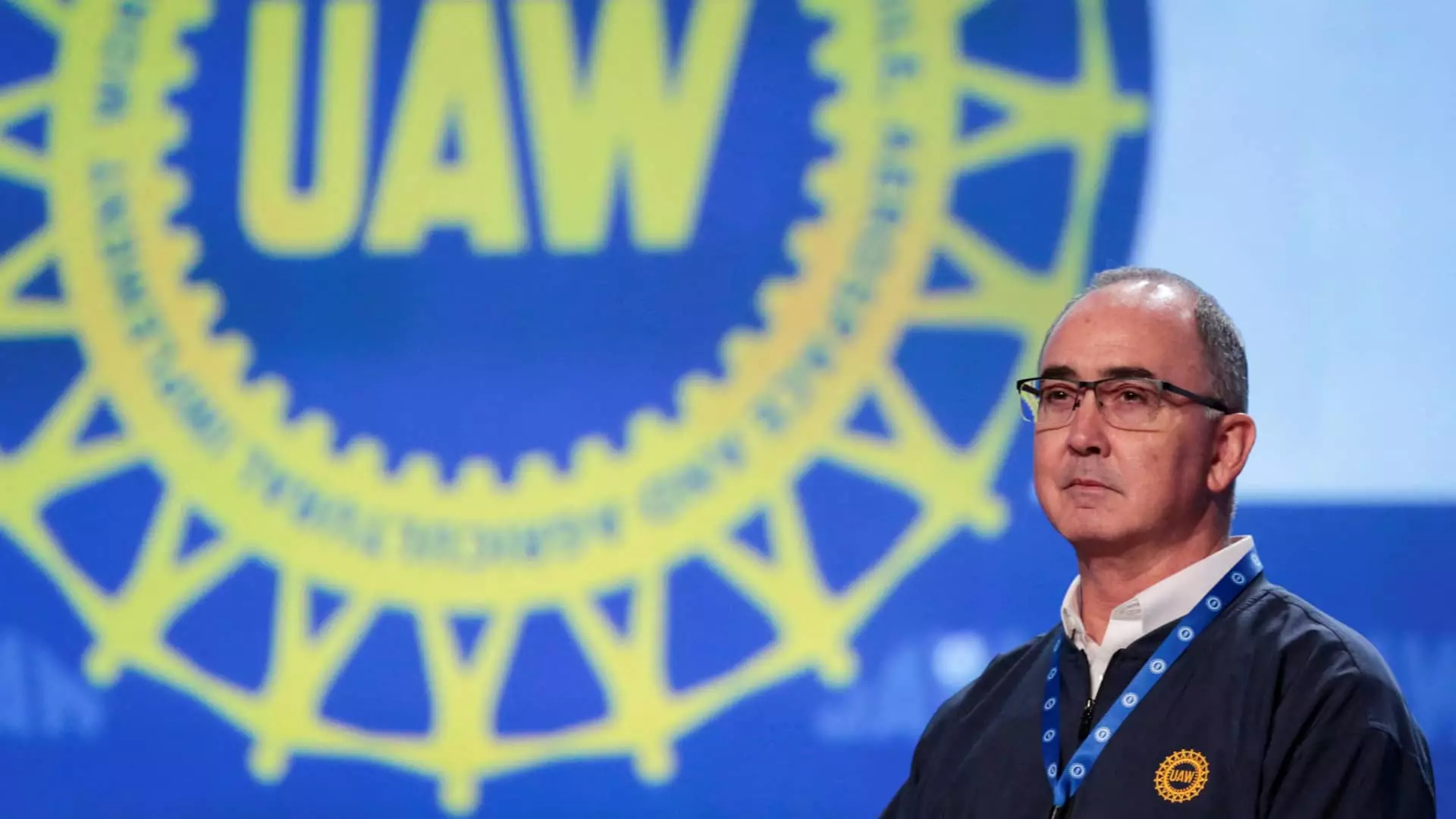In a significant escalation of tensions, Shawn Fain, President of the United Auto Workers (UAW), has directed pointed criticism at Stellantis CEO Carlos Tavares, accusing him of not only price gouging consumers but also of failing to uphold labor agreements set by the union. This accusation surfaced in a video released on a Friday afternoon, where Fain made clear his discontent with Stellantis’ recent operational trends. As the automotive industry continues to face shifting dynamics, these critiques highlight broader concerns surrounding labor practices, executive compensation, and corporate accountability.
Critically, Fain’s assertions come amid a backdrop of decreased sales and profitability for Stellantis. In his roughly two-and-a-half minute video, he takes aim at Tavares for what he characterizes as exploitative practices that prioritize executive profit over fair wages for workers and reasonable pricing for consumers. Fain’s initial statement was blunt: “Something is rotten at Stellantis.” This phrase sets the tone for a discourse that questions the very fabric of Stellantis’ business model and priorities.
Dissecting the Allegations
The substance of Fain’s criticism revolves around a multifaceted narrative: declining sales figures contrasted against an escalating remuneration for Tavares. In Fain’s view, these discrepancies indicate a failure of leadership that places profit margins over the well-being of both employees and the consumer base. “Fact, for years, Stellantis has sold fewer cars, but made more in profits,” he asserts, suggesting that consumers are bearing the brunt of corporate greed through inflated prices. Such price gouging is particularly troubling in an economic environment where consumers face rising costs of living.
Moreover, Fain has drawn attention to what he perceives to be Stellantis’ breach of labor agreements, particularly concerning the Belvedere Assembly plant in Illinois—a site pivotal for the local economy and UAW members. His position raises ethical questions: when an executive alters previous commitments made to employees during contract negotiations, is that not a form of betrayal? This serves as a compelling point of discussion regarding the importance of integrity in corporate governance, particularly within unionized environments.
In a juxtaposition to Fain’s comments, Tavares has previously addressed challenges related to workforce quality, specifically criticizing certain operational inefficiencies at the Sterling Heights Assembly Plant. This pushback from Tavares in response to looming criticism indicates a contentious atmosphere where blame is rapidly shifted, and accountability, at times, seems diluted. Instead of fostering cooperation, the dialogue appears to devolve into a tit-for-tat exchange, further complicating the relationship between the UAW and Stellantis.
Amid self-identified challenges within Stellantis, Tavares has publicly implemented a “Dare Forward 2030” strategy. This ambitious initiative aims to double revenue while decreasing fixed costs through job reductions and restructuring. Although such strategies might be commonplace in corporate America, their execution—and the humane implications thereof—brings to light the potential dangers of austerity measures in an industry reliant on both talent and morale.
The ripple effects of Stellantis’ cost-cutting approach are severe, impacting thousands of employees who find themselves at the mercy of executive decision-making. With Stellantis reportedly cutting its workforce by over 15% since the merger of Fiat Chrysler and PSA Groupe, the human toll of such actions cannot be ignored. For each employee ushered out the door, there are families and communities left grappling with the financial consequences. Critics argue that executive layoffs and workforce reductions may signify mismanagement at the highest level, especially when executive pay continues to rise even in times of widespread job loss.
As the automotive sector grapples with ongoing market disruptions from rising electric vehicle demand to global supply chain challenges, the philosophical divide between executives and labor leaders seems destined to deepen. Fain’s remarks reflect an increasing frustration within the UAW that underscores a broader call for accountability within corporate hierarchies. The resilience of labor unions will hinge not only on their ability to negotiate favorable contracts but also on their capacity to challenge what they perceive as unethical practices at the top.
The discord between UAW and Stellantis encapsulates a microcosm of larger issues within the corporate landscape—an enduring struggle for fair treatment, corporate responsibility, and ethical leadership. As discussions continue, both sides must recognize that their futures are intertwined; harmony between unions and management is crucial for sustainable success in the evolving automotive industry.

